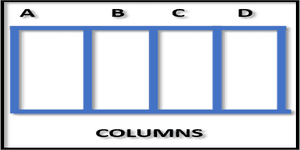SUPREME COURT
- 184(1) Original jurisdiction in inter-governmental disputes, issues declaratory judgments;
- 184(3) Enforcement of Fundamental Rights involving an issue of public importance;
- Art 185(2) Appeal from judgment/order of High Court in criminal cases, tried in original and/or appellate capacity and having imposed death penalty or life imprisonment;
- Art 185(2) Appeal in civil cases when the value of claim exceeds fifty thousand rupees;
- Art 185(2) Appeal when High Court certifies that the case involves interpretation of the Constitution;
- Art 185(3) Appeal (subject to grant of leave) from High Court judgment/order;
- Art 186 Advisory jurisdiction on any question of law involving public importance referred by the President;
- Art 187 To issue directions/orders for doing complete justice in a pending case/matter;
- Art 188 To review any of its own judgment/order;
- Art 204 To punish for its contempt;
- Art 212 Appeal from Administrative courts/tribunals; and
- Art 203F Its Shariat Appellate Bench hears appeals from judgments/orders of Federal Shariat Court.
FEDERAL SHARIAT COURT
- Art 203-D To determine whether a provision of law is repugnant to the Injunctions of Islam;
- Art 203 DD Revisional Jurisdiction in cases under Hudood laws;
- Art 203 E To review its judgment/order;
- Art 203 E To punish for its contempt; and
- Under Hudood laws, hears appeals from judgment/order of criminal courts.
HIGH COURT
- Art 199(1) to issue 5 writs namely mandamus, prohibition, certiorari, habeas corpus and quo warranto;
- Art 199(2) Enforcement of Fundamental Rights;
- Art 203: To supervise/control subordinate courts;
- Art 204: To punish for its contempt;
- To hear appeal under S.100 of CPC;
6.To decide reference under S.100 of CPC;
- Power of review under S.114 of CPC;
- Power of revision under S.115 of CPC;
- Appeals under S.410 of Cr.P.C;
- Appeals against acquittal under S.411-A(2) of Cr.P.C
- Appeals against judgment/decree/order of tribunals under special laws;
- To issue directions of the nature of habeas corpus under S.491 of Cr.P.C;
- Power of revision under S.439 Cr.P.C
- Hedge Inter-Court appeal at Lahore High Court and High Court of Sindh,
DISTT & SESSIONS JUDGE/ADDL. DISTT. & SESSIONS JUDGE
- Appeal against judgment/decree of a Civil Judge under S.96 of CPC;
- Appeal against order under S.104 of CPC;
- Power of revision under S.115 of CPC;
- Original jurisdiction in suits upon bills of exchange, hundies or promissory notes under Order XXXVII of CPC;
- Murder trial under S.265 of the Cr.P.C;
- Criminal trial under Hudood laws;
- Appeals under S.408 of Cr.P.C;
- Power of revision under S.439-A of Cr.P.C;
- To issue directions of the nature of habeas corpus under S.491 of Cr.P.C; and
- Decides pre-arrest bail applications under S 498 of the Cr. PC.
- Being An ex-officio Justice of the Peace may issue appropriate directions to the police authorities concerned on a complaint regarding
(i) non-registration of a criminal case;
(ii) transfer of investigation from one police officer to another; and
(iii) neglect, failure or excess commited by a police authority in relation to its functions and duties.
CIVIL JUDGE 1ST CLASS
- To try all civil suits, there is no pecuniary limit on its jurisdiction;
- In certain jurisdictions also designated as Rent Controller;
- In certain jurisdictions also designated as Judge, Family Court;
CIVIL JUDGE 2ND CLASS
- To try civil suit up to the value of Rs. 50,00,00/- ( Rs. 5- Million) ; and
- In certain jurisdictions designated as Rent Controller/Judge, Family Court.
CIVIL JUDGE 3RD CLASS
To try civil suit up to the value of Rs. 10,00,000/- ( Rs. 1-Million)
MAGISTRATE 1ST CLASS
1-To try offences punishable up to 3 years imprisonment and forty-five thousand rupees fine.
2- As Mobile Court under S. 12 Cr.P.C
3- As Judicial Magistrate under S 14 Cr.P.C As Area Magistrate to handle
i- Remands
ii- Discharge Reports etc
MAGISTRATE 2ND CLASS
To try offences punishable up to 1 year.
MAGISTRATE 3RD CLASS
Fifteen thousand rupees fine
Magistrate empowered under S.30 of Cr.P.C.
To try All offences not punishable with death.
But can’t pass a sentence of death or imprisonment exceeding 7 years.






